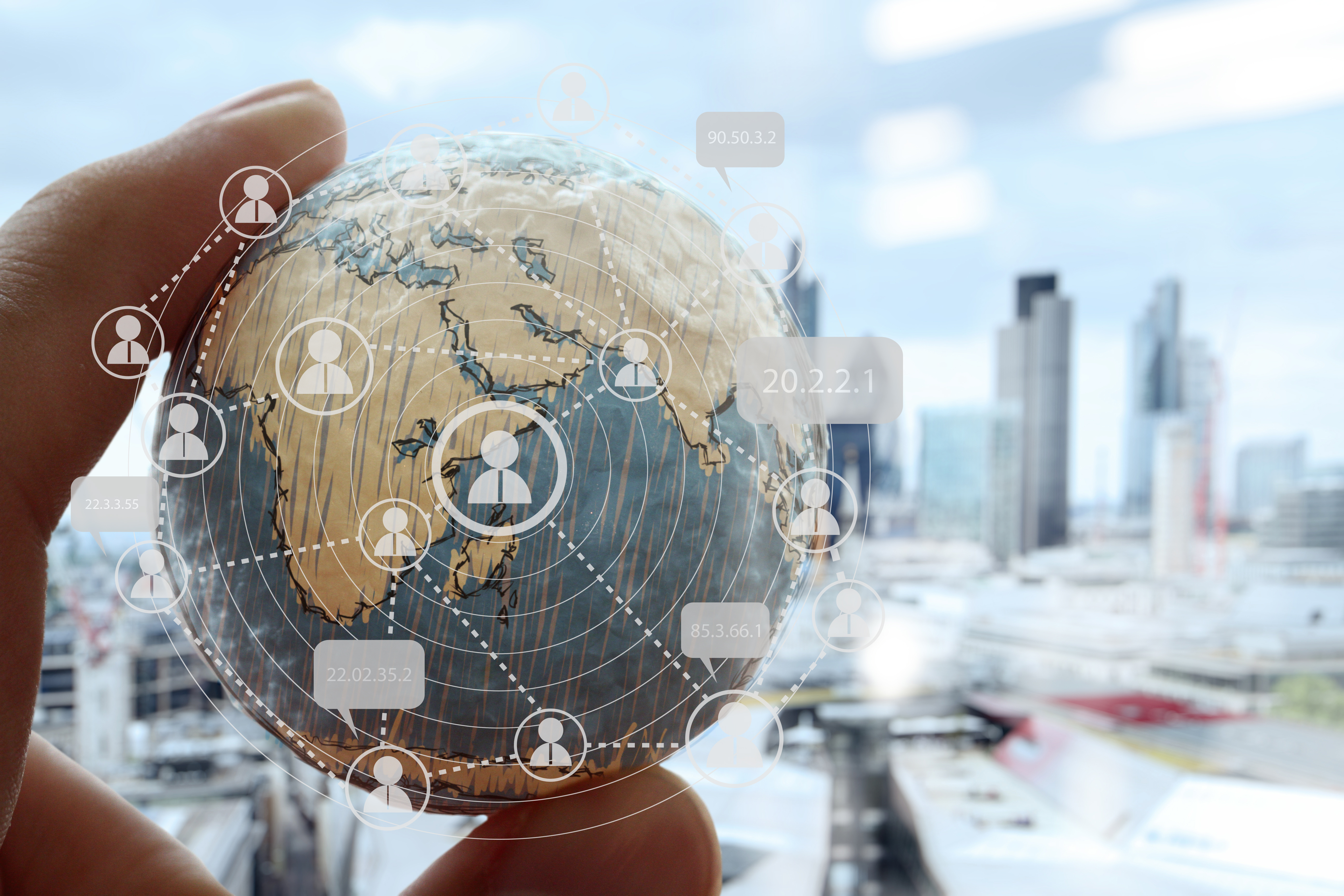The Ground Beneath our Feet…Why Globalisation and Emerging Technologies go Hand in Hand
Why does globalisation matter…and why does it matter so much? Those may seem odd questions to ask, especially when it comes to a social and economic phenomenon that’s already part of our everyday lives: it’s like asking why oxygen, water or Boris Johnson matter (well, maybe not Boris…not anymore, but you get the point). And the point, of course, is that you should never take the ground you’re standing on for granted: it always bears examining closely, not least because, when it moves, you’ll be moving with it. Economists call those “movers” externalities, and they pop up all the time: shifting the earth beneath our feet and challenging our most entrenched thinking. And, right now, the planet’s most powerful externality is Emerging Technology, more of which in a moment…but first, a few more words about globalisation…
In the late Eighteenth Century, before the Industrial Revolution, almost every country on earth produced pretty much everything it consumed. But in England (the home of that particular revolution), there were some things it couldn’t produce but still wanted to consume: things like exotic spices and Indian cotton. So, enter the East India Company with a mission to pillage the required supplies (I’m not joking), and ship them back to London. Imports rose, Britain became a great trading nation, and it acquired the world’s largest navy to protect all that cotton and cinnamon. Then along came the Industrial Revolution (the mother of all externalities), and the business model changed …
Foundries from Coalbrookdale to Clydeside were producing iron and steel in such quantities that even Britain’s railway boom of the first half of the Nineteenth Century couldn’t keep up. Overseas markets, and India, in particular, assumed a new prominence; the Queen became an Empress, and the shipping lanes changed direction: now they were heading for Bombay, Bengal, and Calcutta, supplying the subcontinent with railways and turning Britain into an export-based empire: and it wasn’t just India…most of the rest of the world was getting the same imperial treatment, and it wasn’t long before America, Germany, and France jumped on the bandwagon.
In no time at all, world markets became better connected and busier than ever before, and hey
presto… Globalisation was born.
An Economic Success Story…Without Parallel
Nowadays, you can ship containerised vehicle parts from China, pre-assemble them in Mumbai, complete the assembly process in Munich, and have the finished car consigned and ready for sale in a London showroom, all within a month. We take it for granted these days, but it’s a breathtaking achievement, and we owe it all to globalisation.
But globalisation has a flaw…
Paying by Fax
Cross-border supply chains are critically dependent on the efficiency of international fund transfers: everything from complex maritime finance to consumer-based e-commerce transfers, they all have to happen like clockwork, and the overall scale of the market is staggering: more than $156 Trillion so far this year alone ($800 Billion of which is consumer-to-consumer payments). Millions upon millions of individual transfers take place every day; they’re the lifeblood of international commerce, and they all have to happen like clockwork.
Except they don’t…
The sheer scale of the system is also its critical weakness: most of today’s banking infrastructure was put together in the 1970s and relies on technology bolted up in the beige times before desktop computers (never mind mobile phones), and now, inevitably, it’s creaking at the seams…Absurdly, it can take longer to transfer funds from London to Chennai than it takes to ship and assemble that new the car we were talking about (no need to skip back… it takes a month). None of that makes any sense in a modern digital world…why should it take longer to send funds from here to there than it takes to build a car?
And that’s precisely where our new externality comes into play.
Neo Platforms…Why Not?
With traditional bricks and mortar banks showing little, if any, inclination to up their game, international payment systems are being increasingly disrupted by Digital Neo Platforms, and global markets are set to get ever slicker as a result. And, you have to ask yourself, why not…
In an age when you can book a flight from your phone in the park or download a spreadsheet on the bus home, why should you have to wait weeks for a man with a landline and fax to send your money where you want it (whether you’re a retail or a business customer)? No reason at all…and that’s why Neo Platforms are streaking ahead: it’s also why Bricks and Mortar Banks are under increasing pressure to catch up and get digital themselves (most recently from the Bank of England (www.bankofengland.co.uk)); added to which new compliance protocols have been introduced to cope with what will inevitably be faster fund transfers once the system goes fully digital (notably the EU’s Sixth Anti Money Laundering Directive (https://finance.ec.europa.eu/)).
So, make no mistake, Neo Platforms are a real game changer, and (to answer the question posed at the beginning of this piece) it’s another reason why globalisation is so important…and set to get more
important still.
Red Ribbon Asset Management (www.redribbon.co) aims to harness the full potential of fast-evolving, emerging technologies: working to meet the needs of global communities as part of a circular economy and recognising the demands of the Planet, People and Profit.
Executive Overview
Globalised Markets are already a game changer, so imagine what we could achieve if cross-border payments were restructured to meet the demands of a digital age. That’s where Neo Platforms are making a difference, and they’re set to bring us closer together than ever before.







.png)

Leave a Reply